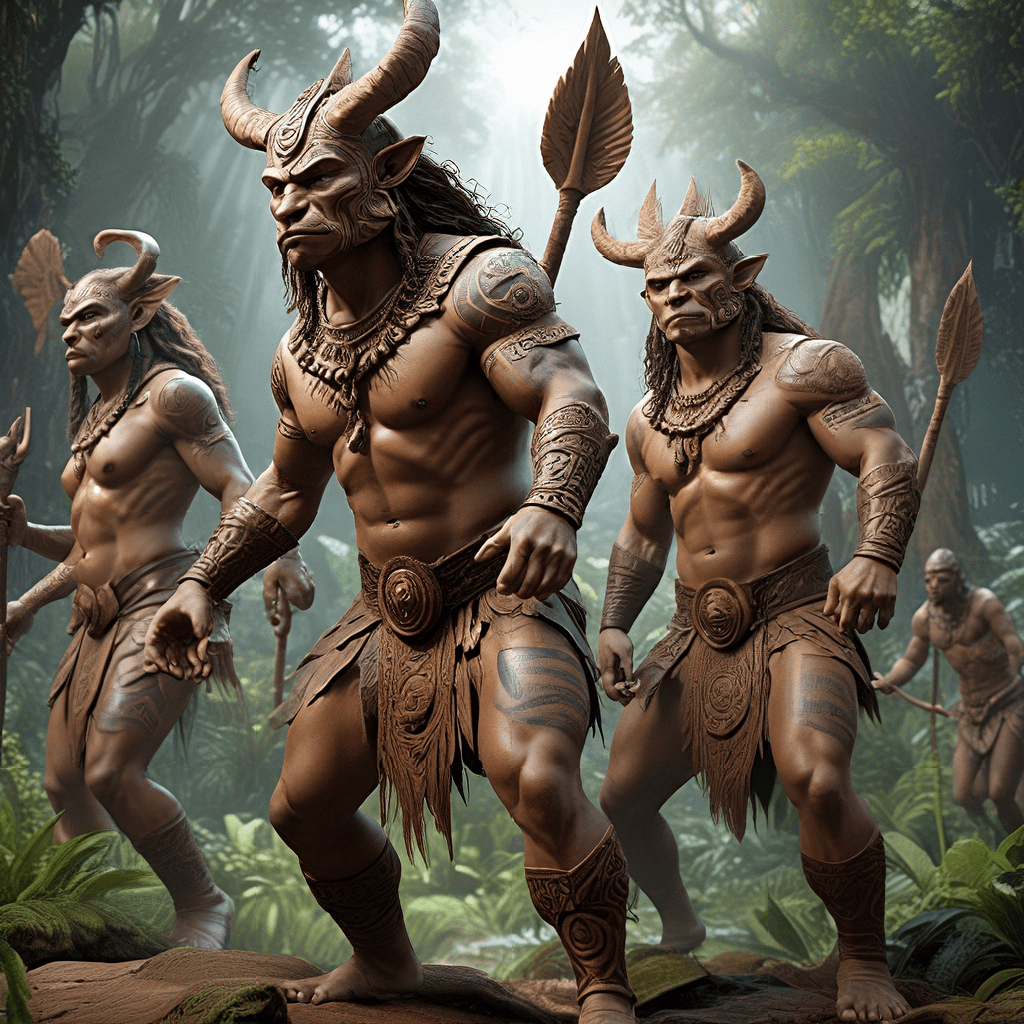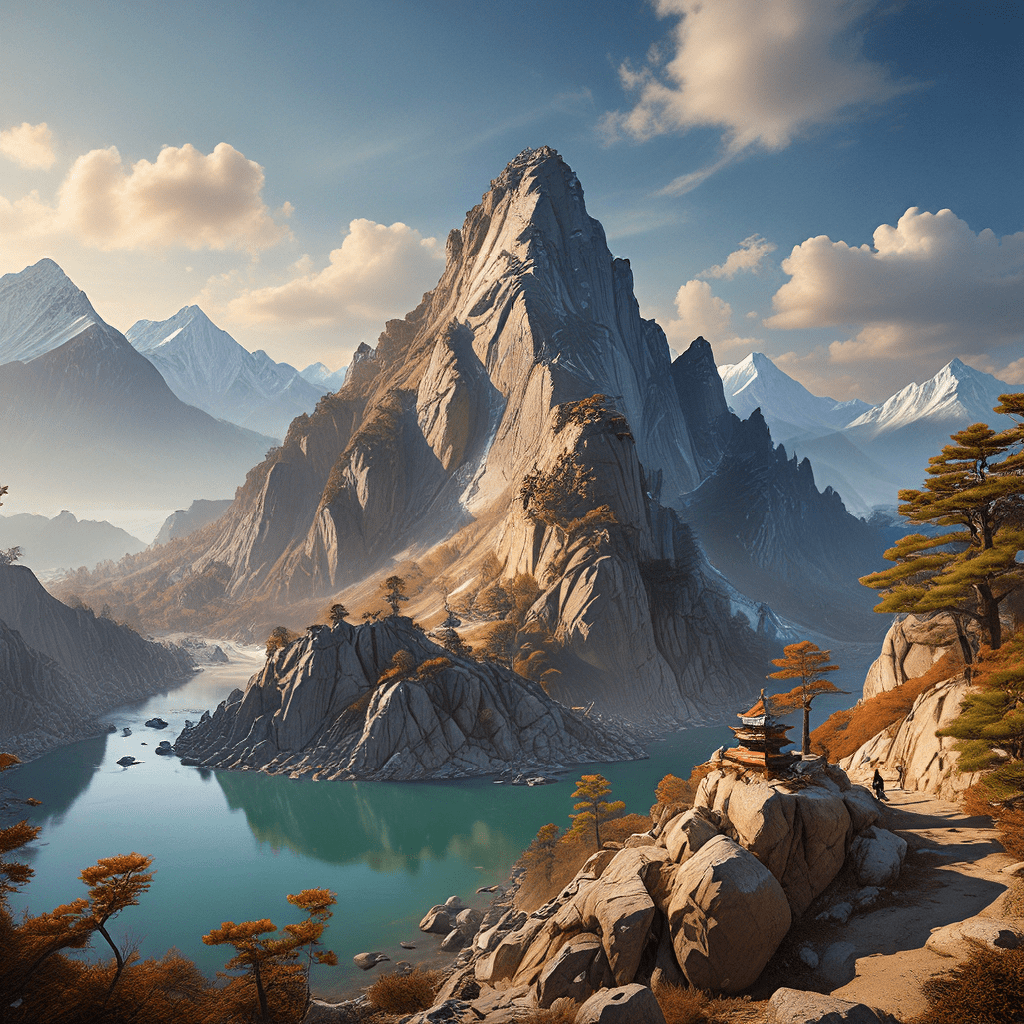Maori Mythological Creatures: A Tapestry of Belief
The Maori people of New Zealand have a rich and complex tapestry of mythology, woven through generations and passed down through storytelling. Their beliefs encompass a vibrant world of spirits, gods, and creatures, each with their own unique role in the delicate balance of the natural world. These mythical beings are not just figments of imagination; they are a reflection of the Maori worldview, their connection to the land, and their understanding of the unseen forces that shape their lives.
A Realm of Spirits: Understanding Maori Cosmology
Maori cosmology is a complex system of beliefs that sees the world as interconnected and infused with spiritual energy. The universe is seen as a living entity, with the earth, sky, and ocean all inhabited by a diverse range of spiritual beings. This understanding influences their relationship with nature, shaping their values and their understanding of the world around them.
At the heart of Maori mythology lies the concept of mauri, a life force that permeates all things. Mauri is the essence of life, the vital energy that flows through every living creature, every plant, and every element of the natural world. It is this mauri that connects humans to the spiritual world, making them part of a larger, interconnected universe.
Taniwha: Dwellers of the Deep and the Guardians of the Land
One of the most recognizable figures in Maori mythology is the taniwha. These powerful, shape-shifting water spirits are often depicted as monstrous creatures, living in rivers, lakes, and the ocean. They are guardians of the land, protectors of the mauri of the water, and their power is both feared and revered.
Taniwha are also known as kaitiaki, meaning "guardians". They are charged with protecting the natural world, ensuring the balance of life, and punishing those who misuse the land or disrespect the mauri. They are often associated with specific locations, serving as the embodiment of a particular area's history and spiritual energy.
The Shapeshifting Power of the Tanemahuta
In Maori mythology, Tanemahuta is known as the god of forests, birds, and all things that grow. He is a powerful and versatile deity, capable of shapeshifting, a trait shared by many other mythical creatures. This is a reflection of the Maori understanding of the interconnectedness of nature, and the belief that different aspects of the natural world can interact and transform.
Tanemahuta plays a crucial role in the creation story, and his power over the natural world is deeply respected by the Maori people. He is often depicted as a powerful warrior, battling against other deities and shaping the landscape with his immense power.
The Malevolent Nature of the Patupaiarehe: Mythological Fae of the Forests
The Patupaiarehe are a race of beautiful, ethereal beings who are often associated with the forests of New Zealand. They are known for their enchanting beauty, their musical talents, and their mischievous nature. These creatures are often described as being like fairies, but with a more sinister side.
While they can be benevolent, Patupaiarehe are also known for their unpredictable nature and their tendency to trick humans. They are often associated with the hidden dangers of the forest, and their presence is a reminder of the power and mystery of the natural world.
The Threat of the Moa: A Giant Bird with a Dark Past
The moa, a giant bird that once roamed New Zealand, holds a unique place in Maori mythology. Though now extinct, its legacy lives on in tales of its immense size, strength, and the destructive power it wielded. Moa were not merely creatures of the natural world but also embodied a specific kind of power, one that could be both feared and respected.
The moa's presence in Maori folklore reflects the deep respect and reverence the Maori people held for the natural world, while also acknowledging its inherent power and potential danger. The moa's extinction is itself a significant event within Maori mythology, often attributed to human actions, serving as a cautionary tale about the consequences of disrespecting the mauri of the land.
The moa's story is a reminder of the delicate balance between humans and nature, highlighting the power of nature and the need for respect and responsibility in the face of such formidable forces.
The Protective Role of the Tīpuna: Ancestral Spirits and Guardians
The tīpuna, meaning "ancestors," are a powerful presence in Maori mythology. They are not merely revered figures of the past but living spirits, guardians of the mauri of their descendants and the land they inhabit. Tīpuna are the bridge between the physical and spiritual worlds, their knowledge and wisdom guiding their descendants in navigating the complexities of life.
The tīpuna are not simply remembered but actively involved in the lives of the living, their presence felt in the land, in the traditions, and in the very essence of the Maori people. Their role extends beyond mere protection; they are guides, teachers, and ultimately, the custodians of the Maori identity.
The Power of the Atua: Gods and Goddesses of the Natural World
The atua are the deities of the Maori pantheon, powerful beings who embody the forces of nature and the spiritual world. They are not worshipped in the traditional sense but rather revered and respected, their presence acknowledged and their powers honored. Each atua has a specific domain, representing aspects of the natural world, human emotions, or societal structures.
The atua are not benevolent or malevolent, but rather forces of nature, acting according to their own inherent power and purpose. They are not to be manipulated or controlled, but rather understood and respected, their wisdom and influence acknowledged in the lives of the Maori people.
The Role of Myth: Shaping Maori Identity and Values
Maori mythology is not simply a collection of stories but a living system of beliefs that shapes their identity, values, and understanding of the world. The creatures, spirits, and deities within these stories are not just figments of imagination, but embody the Maori way of life, their connection to nature, and their understanding of the forces that shape their existence.
Each story serves as a lesson, a cautionary tale, or a reflection of the Maori worldview. Through these myths, generations have learned about the interconnectedness of all things, the need for respect towards nature, and the importance of maintaining the delicate balance of the mauri.
Harbingers of Change: Exploring the Threat and Power of Mythological Creatures
The creatures of Maori mythology are not merely symbolic figures but reflect the inherent power and mystery of the natural world. They are a reminder of the forces that shape their lives, the dangers that lurk in the shadows, and the unseen forces that influence their destiny.
These creatures are not always benevolent, often serving as harbingers of change, warning of impending danger, or representing the destructive forces that can threaten their existence. The taniwha guarding the waters, the Patupaiarehe luring humans into the depths of the forest, the moa reflecting the power and potential dangers of nature – each represents a different aspect of the interconnectedness of the natural world.
The Maori people's understanding of these creatures reflects both their respect for the natural world and their awareness of the potential threats it holds. These mythic beings are not just stories but reflections of their understanding of the forces that shape their lives.
FAQ
Q: Are Maori mythological creatures real?
A: Maori mythological creatures are not literal creatures but represent the Maori people's understanding of the natural world and its unseen forces. They are embodied metaphors for the power, mystery, and interconnectedness of nature.
Q: What is the purpose of Maori mythology?
A: Maori mythology serves to educate, guide, and inspire. It reflects the Maori worldview, their connection to nature, and their understanding of the forces that shape their lives.
Q: How does Maori mythology influence Maori culture?
A: Maori mythology is deeply ingrained in their culture, influencing their art, dance, language, and their relationship with the natural world. It serves as a source of wisdom, knowledge, and spiritual connection.


